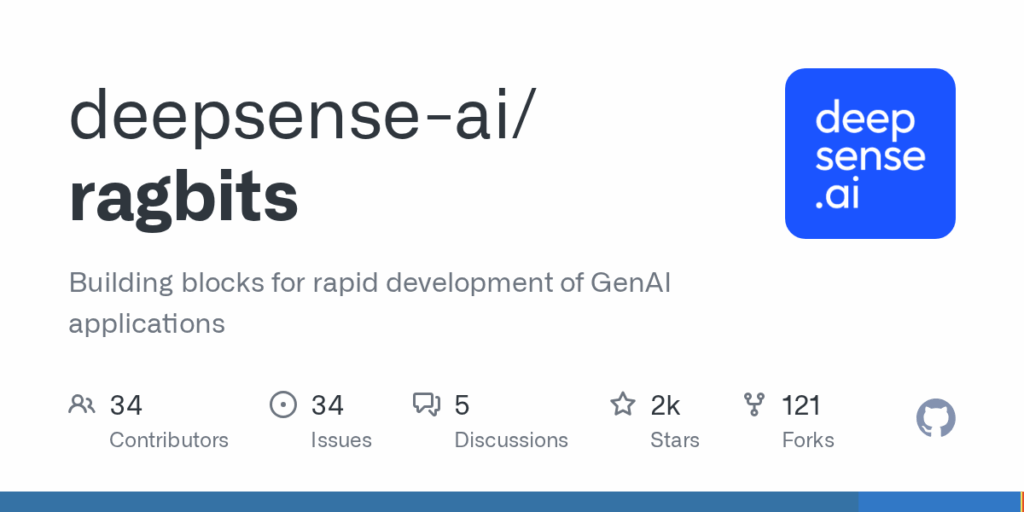ragbits
Basic Information
Ragbits is a Python-based toolkit and starter bundle designed to accelerate development of generative AI applications. It provides modular packages and developer tooling for common GenAI needs including prompt management, LLM integration, vector databases, document ingestion, retrieval-augmented generation, agent abstractions, chat interfaces and a command-line for testing and operations. The repository bundles core libraries such as ragbits-core, ragbits-agents, ragbits-document-search, ragbits-evaluate, ragbits-chat and ragbits-cli, and is intended for engineers and teams building production-ready RAG systems, multi-agent workflows and conversational apps. It emphasizes modular installation so teams can install only needed components, and includes quickstart examples demonstrating prompts, document search, RAG pipelines, agentic RAG and a chat API. The project includes templates and a project generator to bootstrap new Ragbits applications and documentation and contributing guidance to extend the stack.








